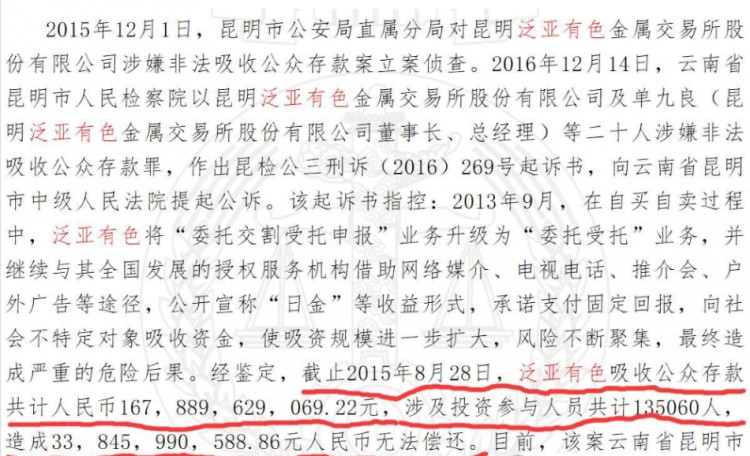An amazing case! British police arrested a Chinese female delivery worker with 61,000 Bitcoins worth US$6.3 billion on suspicion of money laundering.
According to reports, the British court ruled on March 18 that a 42-year-old Chinese woman was suspected of participating in money laundering activities and sentenced her to a $6.3 billion money laundering case. The verdict is expected to be pronounced on May 10. Police seized more than 61,000 bitcoins worth more than £3.4 billion during the investigation, making it the largest amount of cryptocurrency ever seized. The funds were allegedly from a fraud syndicate that defrauded nearly 130,000 Chinese investors between 2014 and 2017.
Foreign media reported that a Chinese woman, Jian Wen, was convicted on suspicion of laundering 150 Bitcoins in a money laundering case. Another 45-year-old woman accused of being the leader of the scam, Yadi Zhang, has fled the UK and her whereabouts are unknown.

In September 2017, shortly after China's most wanted criminal Zhang Yadi (also known as Qian Zhimin, transliteration of Yadi Zhang) came to London, British Chinese citizen Jian Wen (transliteration of Jian Wen) left her job and residence in a Chinese takeaway restaurant and moved Entered a £5m six-bedroom house near Hampstead Heath.
After Zhang Yadi (also known as Qian Zhimin, transliteration of Yadi Zhang) arrived in the UK, Jian Wen (transliteration of Jian Wen) assisted her in converting Bitcoins into cash, jewelry, luxury goods and real estate to conceal the source of the funds.
They claimed they ran a multinational jewelery company, dealt in diamonds and antiques, and bought tens of thousands of pounds of designer clothes and shoes at Harrods.
Jian Wen also bought a Mercedes-Benz E-Class worth £25,000 and sent her son to the £6,000-per-term Heathside prep school.
She then attempted to buy some of London's most expensive properties, including a £23.5 million mansion in Hampstead with a swimming pool, and a £12.5 million home with a cinema and gym.
On October 31, 2018, the British police raided the rented manor of Zhang Yadi (also known as Qian Zhimin, transliteration of Yadi Zhang) and Jian Wen (transliteration of Jian Wen) for the first time, and found that their laptops, flash drives and other devices stored A large collection of crypto wallets for Bitcoin.
As part of the investigation, British police seized a wallet containing more than 61,000 bitcoins in one of the largest cryptocurrency seizures to date by a global law enforcement agency.
Qian Zhimin (also known as Yadi Zhang, transliteration of Yadi Zhang) was in the room at first, but she later left the UK.
According to British prosecutors during Jian Wen's trial, British police gained access to these 61,000 Bitcoins in 2021, which were valued at approximately 1.4 billion pounds at the time. The value of these Bitcoins is now over £3 billion, with 23,308 Bitcoins linked to the investigation still in circulation and currently worth over £1 billion.
Jian Wen claimed that she believed Qian Zhimin (also known as Yadi Zhang, transliteration of Yadi Zhang) was a successful businessman who accumulated wealth through jewelry business, real estate investment and legal Bitcoin mining.
Jian Wen, 42, denied three counts of money laundering and provided evidence that she had no knowledge of Qian Zhimin's criminal activities.
According to the case analysis, Yadi Zhang allegedly defrauded approximately 5 billion pounds from more than 128,000 investors and converted them into Bitcoin. Currently, Yadi Zhang has escaped. Jian Wen, who denied the charges at trial, was accused of helping convert some of Yadi Zhang’s bitcoins into cash, property, jewelry and other luxury goods.
Between 2014 and 2017, Yadi Zhang defrauded approximately US$6.3 billion from 130,000 investors in China through financial fraud activities conducted in China. The funds were converted into Bitcoin and transformed into cash, jewellery, luxury goods and other property in the UK with the assistance of Chinese-British Jian Wen.
It is speculated that based on the price of Bitcoin between 2014 and 2017, the initial amount of stolen money should be between 3 billion and 5 billion US dollars, equivalent to about 20 billion to 35 billion yuan.
In addition, it should be noted that two major cases were involved during this time period, namely the Yizubao case and the Pan-Asia Nonferrous Metals case. The number of people involved in the Yizubao case reached 900,000, so it is unlikely to be related to this case. The Pan-Asia Nonferrous Case involved 130,000 people, which is consistent with the facts of the case. Therefore, this case is likely to be related to the Pan-Asia Nonferrous Case.

Regarding the Pan-Asian non-ferrous case, let us sort it out. The main figures in the case include Shan Jiuliang, his wife Zhang Peng (known as Zhang Zinuo in the outside world), and the group's financial director Wen Di (also known as Wen Jian).
The money laundering case exposed this time involving US$6.3 billion seems to coincide with the Pan-Asian Nonferrous Metals Case. It is worth noting that the 33 billion yuan in funds that disappeared in the Pan-Asia Nonferrous Metals case now seems likely to have been converted into Bitcoin.
This incident once again reminds us of the consequences that financial management projects that claim high returns in China will eventually face. Looking back on the Pan-Asian Colored Case of that year, it caused so many people to suffer huge economic losses and led to the destruction of their families. This dealt a heavy blow to the property of ordinary people.
